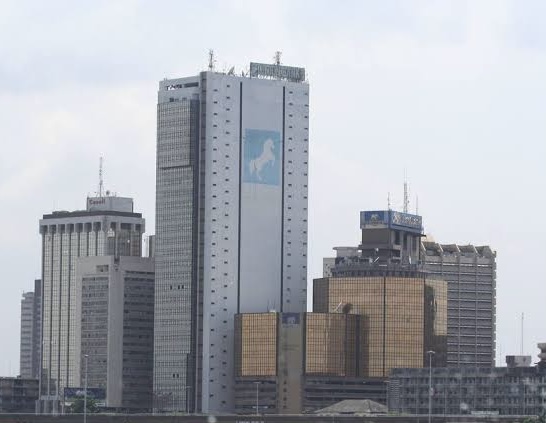
Eterna Plc is an established indigenous player in Nigeria’s downstream petroleum market, active in fuels retail, lubricants blending (under the Castrol license), and selective LPG infrastructure at retail outlets. Its people policies therefore sit at the nexus of operational risk, brand promise, and regulatory expectations. Using publicly available employee reviews and company disclosures, this review highlights what Eterna is getting right—and where HR architecture needs to tighten.
What the public data says (ratings at a glance)
On Glassdoor, Eterna’s overall rating is 3.4/5 (sample size ~40 reviews). On Indeed, there are two distinct listings: an “Eterna” page at 3.6/5 overall with sub-ratings (work–life balance 3.5; pay/benefits 3.2; job security 2.9; management 2.8; culture 2.9) and an “Eterna Plc” page at 3.0/5 overall. Taken together, these indicate mixed but mid-range employee sentiment and should be read as directional rather than audited metrics. [1][2][3]
Strengths: governance posture, entry pathways, and exposure
Eterna’s public filings emphasise non-discrimination (including explicit statements on opportunities for persons with disabilities) and alignment with corporate governance codes—signals that matter in a tightly regulated, safety-critical sector. Operationally, the company offers distinctive exposure: exclusive rights to blend and distribute Castrol lubricants at its Sagamu plant and a retail network where management has announced LPG skid deployments at selected outlets. For early-career and technical staff, this mix of blending, distribution, and retail creates a strong learning arc. [4][5][6]
Frictions: uneven development structures, benefit clarity, and management consistency
While some reviewers cite talented colleagues and opportunities for lateral or upward moves, others report thin formal training beyond safety, benefits disputes, and inconsistent team-level management. The Indeed sub-ratings (job security 2.9; management 2.8) mirror these frictions. A few reviews also describe disagreements over agreed pay and health-insurance adequacy; as individual accounts, they should not be over-generalised—but they do flag communication and transparency risks around compensation. [2][3]
What HR can tighten—fast
- Codify development beyond HSE. Create a visible curriculum that links technical certifications (e.g., blending operations, depot/forecourt HSE, LPG operations) to grade progression and pay bands. Publish the calendar; audit participation quarterly.
- Make compensation entitlements verifiable. Issue role-specific compensation statements (base, allowances, overtime rules) and track grievance-to-resolution timelines. This reduces rumour-driven dissatisfaction and aligns practice with governance claims.
- Stabilise management consistency. Mandatory manager training (feedback, coaching, shift planning) tied to a simple “manager effect” score from confidential pulses can improve perception where sub-ratings lag.
- Show the ladder. A clear internal-mobility dashboard—time-to-promotion by grade, % roles filled internally—signals fairness and reduces attrition among mid-tier performers.
Summary table: Eterna Plc public employee-experience snapshot
| Indicator | Metric | Notes |
| Glassdoor overall | 3.4 / 5 [1] | ~40 reviews; no consistent public “recommend %” shown |
| Indeed overall | 3.0 – 3.6 / 5 [2][3] | Two listings: “Eterna Plc” (3.0) and “Eterna” (3.6) |
| Work–Life Balance | 3.5 / 5 [2] | Sub-rating from “Eterna” listing (directional) |
| Pay & Benefits | 3.2 / 5 [2] | From “Eterna” listing (directional) |
| Job Security | 2.9 / 5 [2] | From “Eterna” listing (directional) |
| Management | 2.8 / 5 [2] | From “Eterna” listing (directional) |
| Culture | 2.9 / 5 [2] | From “Eterna” listing (directional) |
| Common review themes | — | Good team exposure; uneven formal training; benefit/communication clarity issues |
Balanced verdict
Eterna’s governance stance and operational breadth (Castrol blending, fuels retail, emerging LPG infrastructure) are real strengths, as is the learning exposure for early-career and technical staff. The gap sits in the translation layer: turning policy into consistent day-to-day experience on training, benefits clarity, and team-level management. Close that execution gap and Eterna’s HR brand can move from “mid-pack” to a competitive advantage.
Hypotheses for further inquiry
- Firms with strong governance disclosures but inconsistent benefit communication experience higher mid-tier churn than peers with similar pay levels.
- Linking technical credentials to transparent progression gates reduces exit intent in operations teams over a 12-month window.
- Introducing a quarterly manager-effect score (and coaching tied to it) improves work–life balance and retention metrics within two appraisal cycles.
About the Author
Dr Olufemi Ogunlowo is the Publisher of Anchor News and the CEO of Strategic Outsourcing Limited, a leading provider of personnel and business process outsourcing services in Nigeria.












